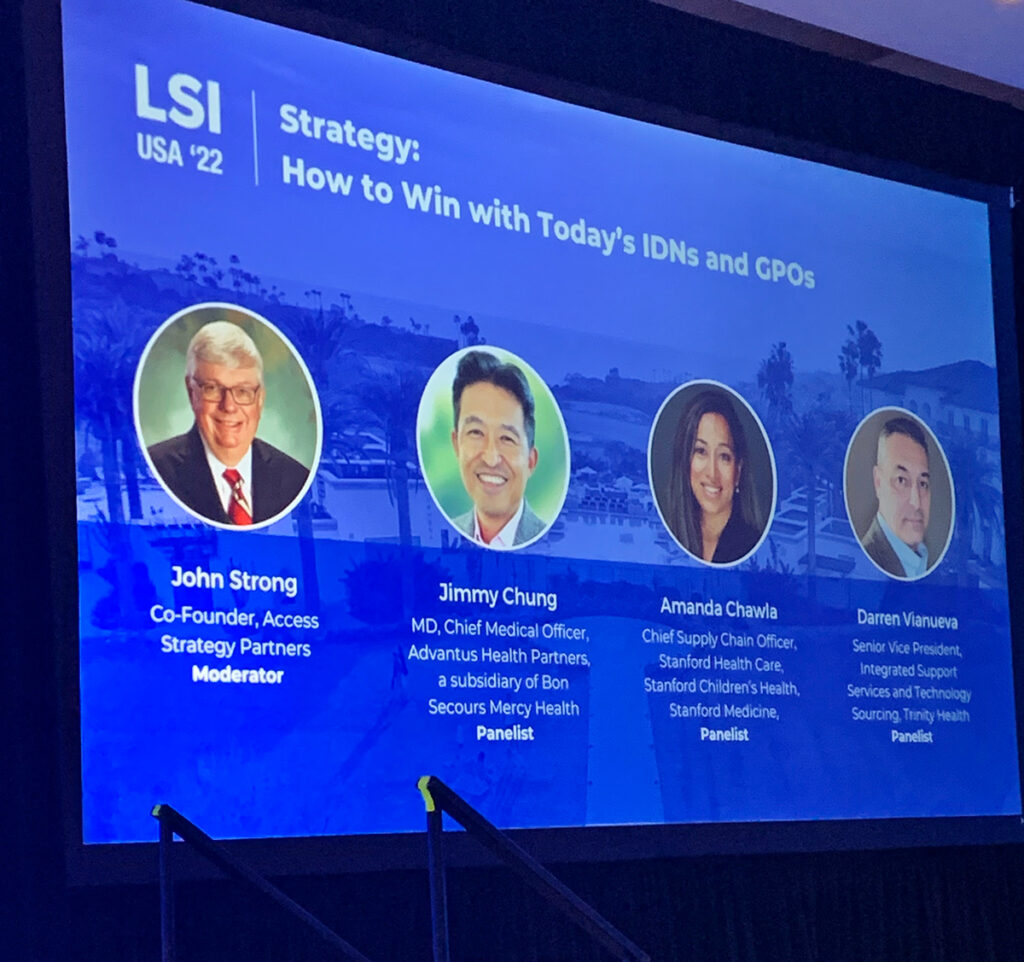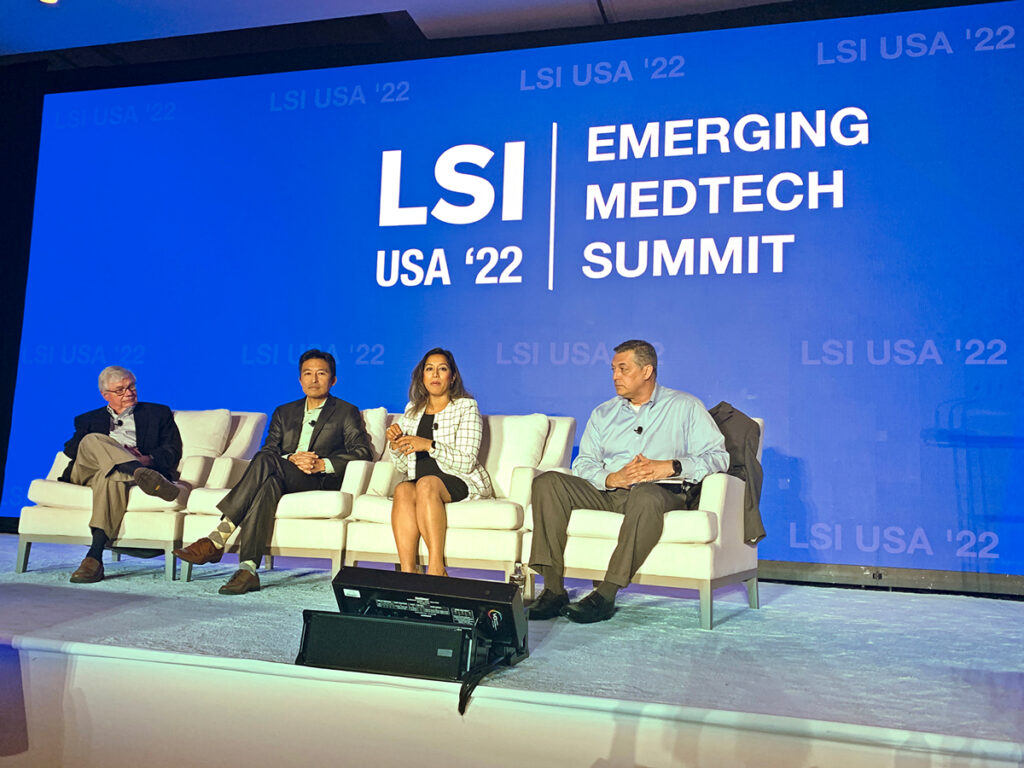Almost unknown to healthcare supply chain executives, the Life Science Intelligence Emerging MedTech Summit is held annually. It brings together many of the greatest healthcare entrepreneurs and innovators of medical devices together with potential investors, banks, and large medical device manufacturers. This year’s event brought together close to 800 people in Dana Point, California, March 15-18. In addition to many presentations by MedTech thought leaders, hundreds of aspiring MedTech companies made 9-minute pitches of their products to investors in a mind-boggling display of the future of healthcare.
John Strong, Co-founder and Chief Consulting Officer for Access Strategy Partners Inc, hosted a panel discussion entitled “Strategy: How to Win with Today’s IDNs and GPOs”. Joining John were three supply chain thought leaders from across the country:
- Amanda Chawla, Vice President and Chief Supply Chain Officer for Stanford Health Care
- Darren Vianueva, Senior Vice President for Integrated Support Services and Technology Sourcing for Trinity Health
- Jimmy Chung, MD, Chief Medical Officer for Advantus Health Partners.

Despite great technological prowess, many attendees have little idea how their inventions are going to be evaluated in today’s IDNs. The term “value” and the use of value analysis to evaluate and review the deep value of new technology was thoroughly discussed for the audience. The panel shared a snapshot of their processes and discussed the need for emerging technology suppliers to take a collaborative approach with them to better understand each other, as well as the need to define the true value components of the technology – beyond price and sales. Generally, the panel agreed the need to define value can be segmented into several areas, including:
- A definition of the problem being solved
- Clinical value that is well-defined for the physician and patient
- Clinical process changes that might be required at the time of adoption
- Economic and reimbursement value for the provider including evaluation of factors such as length of stay, readmissions, and outcomes
Chawla noted that there is a need to work closely with suppliers, to carefully understand the procedures being addressed, and the potential benefits the new technology brings. She emphasized the need to define the medical problem being addressed first. Suppliers must be able to provide as much of this information as possible and should be ready to address this at their first meeting. Each panelist agreed and noted that their organizations all used a multidisciplinary approach to value analysis, although the specific processes were a bit different.
Each panelist’s supply chain operation is responsible for the value analysis process within its organization, and each noted that supply chain is key point of entry that can make the entire process of bringing new technology to their organizations go faster and smoother.
A key factor in almost all technology evaluation is cyber security. Vianueva noted it is a huge problem that is growing larger all the time. In fact, his organization’s firewall is attacked more than 1.2 million times a day. Being able to have and describe security measures on any devices requiring access to the Internet was a key point. Again, suppliers should be ready to address this on a first visit.

Dr. Chung spoke about the need for close communication with physicians, and truly understanding the procedure being addressed, the needs of the patient, and understanding how a new technology fits into a process or technique currently used by the physician(s) during a case. There was consensus among the panelists that supplier’s need to carefully understand the organization they are selling to prior to a first visit and offered recommendations on how to do that.
Because patients are moving outside the hospital to ambulatory surgery centers, imaging centers and clinics at an increasing rate, the panelists each noted their supply chain operations are responsible for evaluating and procuring new products and technologies for these sites of care as well, and their supply chain organizations are the correct point of entry.
A clear sign of success, each panelist was overwhelmed by questions at the conclusion of their presentations, and they spent time after the program with entrepreneurs addressing questions about their organizations and methods. This was the first time the LSI conference had heard about the role of supply chain within potential customers, and how they evaluate and purchase advanced technology for their organizations.
